5 Compelling Reasons to Choose Plastic Rolls for Food Packaging Solutions Worldwide
The global food packaging industry is witnessing a significant transformation as businesses increasingly recognize the advantages of using plastic roll for food packaging. According to a recent market report by Smithers Pira, the global flexible packaging market is expected to reach $248 billion by 2024, driven largely by the versatility and efficiency of plastic materials. This trend reflects the growing demand for solutions that not only enhance product shelf life but also ensure food safety and reduce waste. Plastic rolls, in particular, offer exceptional barrier properties, making them ideal for preserving freshness and preventing contamination. Furthermore, their lightweight nature contributes to lower transportation costs and a reduced carbon footprint. As we delve into this topic, we will outline five compelling reasons why opting for plastic rolls can revolutionize food packaging solutions on a global scale.

Key Benefits of Using Plastic Rolls in Food Packaging
Plastic rolls have emerged as a leading solution in the food packaging industry, driven by their versatility, cost-effectiveness, and sustainability. According to the Flexible Packaging Association, flexible packaging, including plastic rolls, accounted for over $36 billion in sales in 2022, reflecting a growing preference among manufacturers for lightweight and efficient packaging options. One of the key benefits of using plastic rolls is their ability to significantly extend the shelf life of food products, minimizing waste and promoting sustainability. Studies indicate that using high-barrier plastics can reduce spoilage by up to 50%, ensuring that food remains fresh for longer periods.
When utilizing plastic rolls, consider the following tips: Always select food-grade materials that comply with health and safety regulations to guarantee consumer safety. Additionally, opt for recyclable or biodegradable plastic options to enhance your brand’s environmental credibility. Another advantage of plastic rolls is their customizable nature, enabling businesses to tailor them to specific sizes, shapes, and branding requirements. This flexibility not only enhances product visibility on shelves but also aligns with consumers' growing demand for personalized packaging solutions.
Furthermore, plastic rolls allow for efficient production and reduced logistics costs, as they can be sourced and manufactured in bulk, cutting down on material waste. Research suggests that businesses can reduce packaging material costs by up to 25% when shifting from traditional rigid containers to flexible plastic solutions. By prioritizing the use of plastic rolls in food packaging, companies can improve their operational efficiency while also catering to the evolving demands of the food industry.
Durability and Protection: How Plastic Rolls Preserve Food Quality
Plastic rolls have emerged as a vital choice for food packaging due to their exceptional durability and protective qualities, which play a crucial role in preserving food quality. According to a report by Smithers Pira, the global demand for flexible packaging is expected to reach $300 billion by 2024, with plastic packaging accounting for a substantial portion of this growth. This surge is attributed to the material's ability to create airtight seals, which prevent moisture loss and protect against contamination, thereby extending the shelf life of perishable goods.
Furthermore, studies indicate that the use of plastic rolls can reduce food waste significantly. The Food and Agriculture Organization (FAO) estimates that around one-third of all food produced globally is wasted, often due to inadequate packaging. By utilizing high-performance plastic rolls, manufacturers can effectively mitigate this issue, ensuring that food items remain fresh and uncontaminated for longer periods. The lightweight nature of plastic also facilitates transportation efficiency, reducing the carbon footprint associated with food distribution. As consumers increasingly demand sustainable and reliable food packaging solutions, plastic rolls are positioned to play an instrumental role in the global food supply chain.
Cost-Effectiveness: Why Plastic Rolls Save Money for Food Businesses
When it comes to food packaging solutions, cost-effectiveness is a critical factor that can greatly influence the bottom line of food businesses. According to a report by Grand View Research, the global plastic packaging market was valued at approximately $360 billion in 2020, projected to expand at a compound annual growth rate (CAGR) of 3.5% from 2021 to 2028. This growth is significantly driven by the cost advantages that plastic rolls offer over traditional materials like glass or metal. The lightweight nature of plastic reduces shipping costs, while its durability ensures that products remain safe during transit.
Additionally, research by the Food and Drug Administration (FDA) highlights that the efficient use of plastic rolls can lead to optimized production processes. By minimizing waste and maximizing shelf life, businesses can significantly reduce packaging costs—data suggests that using flexible plastic packaging can decrease the overall packaging cost by up to 30%. This reduction is critical in an industry where profit margins are often razor-thin. As a result, more food businesses are turning to plastic rolls, not only for their affordability but also for their role in improving packaging efficiency and sustainability in a competitive market.
5 Compelling Reasons to Choose Plastic Rolls for Food Packaging Solutions Worldwide
| Reason | Description | Cost Savings (%) |
|---|---|---|
| Durability | Plastic rolls are resistant to tearing and puncturing, reducing waste. | 15% |
| Lightweight | Reduce shipping costs due to their lighter weight compared to glass or metal packaging. | 10% |
| Versatility | Can be manufactured in numerous shapes and sizes for various food types. | 20% |
| Barrier Properties | Excellent barrier against moisture and oxygen, extending shelf life. | 25% |
| Recyclability | Many plastic rolls can be recycled, reducing overall environmental impact. | 5% |
Eco-Friendly Innovations: Sustainable Plastics in Food Packaging
As the food packaging industry adapts to evolving consumer preferences and environmental concerns, eco-friendly innovations are becoming increasingly essential. Sustainable plastics, engineered from renewable resources or designed for recyclability, are leading the charge towards a more responsible approach to packaging. These materials not only reduce the carbon footprint associated with traditional packaging but also minimize waste, contributing to a circular economy where reused and recycled materials are prioritized.
Incorporating sustainable plastics in food packaging not only meets regulatory standards but also aligns with the growing consumer demand for environmentally conscious products. Brands that choose plastic rolls made from biodegradable or compostable materials demonstrate a commitment to sustainability, which can enhance their reputation and foster customer loyalty. Moreover, these eco-friendly plastics can offer the same durability and protection as conventional plastics, ensuring that food remains fresh and safe while reducing environmental impact. By prioritizing sustainable packaging solutions, businesses can meet market expectations while playing a vital role in protecting our planet for future generations.
Versatility of Plastic Rolls: Meeting Diverse Food Packaging Needs
Plastic rolls have revolutionized the food packaging industry due to their remarkable versatility, adapting to a wide range of applications while ensuring product safety and freshness. According to a report by MarketsandMarkets, the global flexible plastic packaging market is projected to reach $300 billion by 2023, highlighting the growing reliance on innovative materials like plastic rolls. These products offer various thicknesses and film types, enabling manufacturers to tailor solutions that cater to specific food items, from delicate fruits to sturdy frozen meats.
Another compelling aspect of plastic rolls is their ability to maintain the integrity and shelf-life of food products. The flexible nature of these materials allows for effective barrier properties against moisture, oxygen, and light, which are critical in preventing spoilage. A study published by the Institute of Food Technologists revealed that flexible packaging can extend the shelf life of perishable goods by up to 50%, making plastic rolls an essential choice for suppliers aiming to minimize waste and enhance sustainability in their operations. This adaptability not only meets the diverse packaging needs of food products but also supports the evolving trends toward eco-friendly solutions in the industry.
5 Compelling Reasons to Choose Plastic Rolls for Food Packaging Solutions Worldwide
Related Posts
-
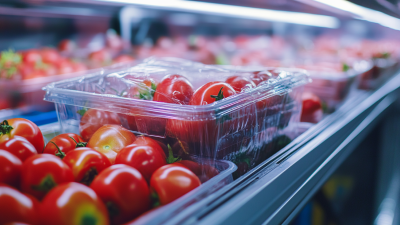
Maximizing Freshness and Safety with Innovative Plastic Roll for Food Packaging Solutions
-
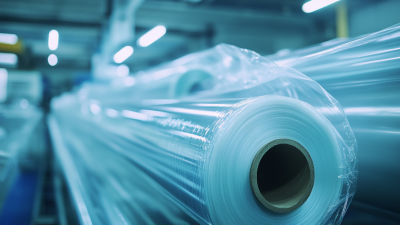
Global Leaders in Food Safety: Discover the Finest Plastic Rolls From China
-
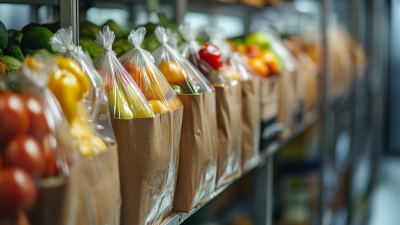
7 Essential Insights for Sourcing Food Packaging Bags Globally
-
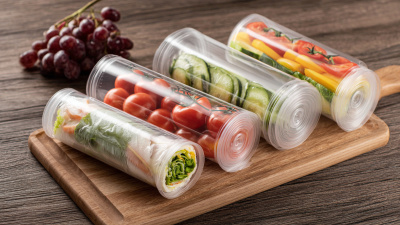
5 Ways Best Food Packaging Plastic Roll Transforms Your Food Storage Strategy
-
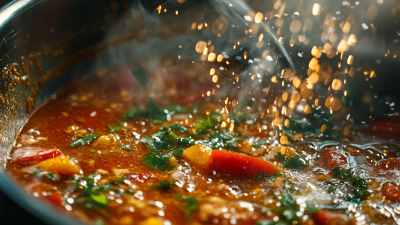
Exploring the Benefits of Sourcing Sauce Curry Food Retort Pouch Solutions
-
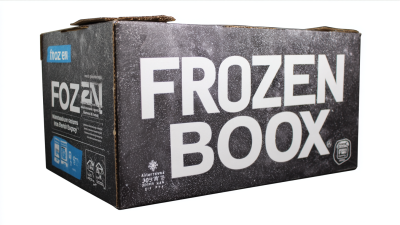
Chinese Manufacturing Elevates Global Standards Through Best Frozen Food Shipping Boxes

 中国
中国